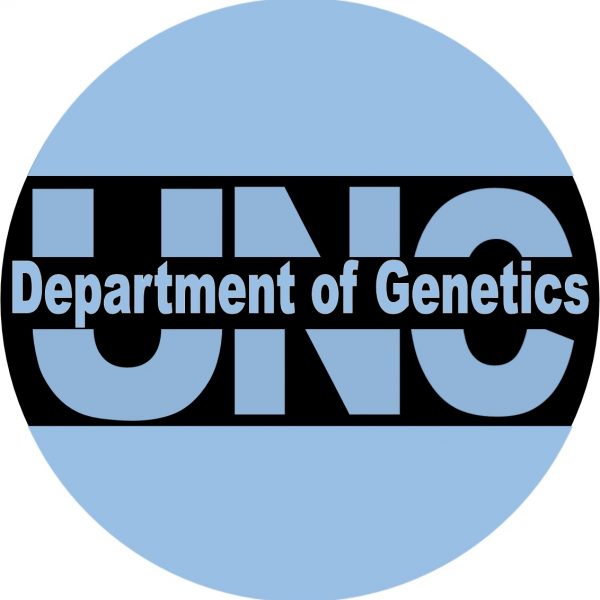Lab Website
Research Interests
Keywords: Inflammation, oxidative-stress, signal transduction, gene discovery, functional genomics and proteomics, gene regulation, molecular immunology, cancer research and neuro-inflammation.
Dr. Ting’s laboratory has broad interest in the application of cutting edge ideas and technology to the study of disease-relevant issues. Major directions include innate immunity, dendritic cell function, cell death, autophagy, signal transduction, gene discovery, functional genomics and proteomics, nanoparticles, gene regulation, neuro-inflammation and microglial cells. Clinical issues of interest include multiple sclerosis, cancer, autoimmune diseases, biologic therapy, infection and inflammation.
Immune gene transcription
Dr. Ting has studied the transcriptional master regulator of class II Major Histocompatibility (MHC) genes called CIITA (class II transactivator) for over a decade. CIITA is extremely important as patients with defects in the gene exhibit severe immunodeficiency.. CIITA promotes the recruitment of DNA-binding protein, transcription cofactors, and histone acetylases/methylases to the class II MHC promoters. More recently, her lab has found that another protein, NLRC5, which has a similar domain structure as CIITA can broadly regulate class I MHC in mice by modifying chromatin structure. Thus NLRC5 and CIITA are master regulators of class I and II MHC, which play central roles in adaptive immune activation.
NLRs: The NBD-LRR proteins regulate inflammatory cytokines, signaling and cell death
Based on the structure of CIITA, Dr. Ting found a large family of genes that encode similar structural motifs as CIITA. This was initially termed the CATERPILLER gene family, and now have been renamed NLRs. NLRs are important for immune defense against bacteria, viruses, fungi, parasites and damage-associated molecules. Mutations in NLRs are the primary genetic causes of several immunologic disorders. Beyond inflammation and infection, her group showed a strong effect of NLRs on cancer and metabolic diseases. RNA interference, gene ablation, genomics, yeast two-hybrid, biochemical and proteomics analyses are performed to understand the functions of these novel genes.
The Detrimental and Beneficial Roles of CNS Inflammation in Disease Progression and Resolution
Inflammation occurs in a number of neurologic diseases such as Alzheimer’s, Parkinson’s, Huntington’s and multiple sclerosis (MS). Using mice with mutations in inflammatory genes, Dr. Ting found that many of these genes, such as NLRs and cytokines, are not only crucial in disease progression (demyelination), but also in disease resolution (remyelination).
The role of immune plexins and semaphorins
Dr. Ting’s work in the plexin and semaphorin family originated because her lab found that CIITA also regulate plexin-A1 gene expression. Plexin-A1 is typically thought to be important for neuronal interaction and retraction. Her new finding presents a new framework to think about how immune cells attract and repulse each other. Her lab found that plexin-A1 and it ligand, Semaphorin 6D, are important for T cell activation. Additionally, they showed that Plexin-A4 and Semaphorin 3A interaction is important in sepsis, Plexin-D1 plays an important role in B cell activation, and Plexin-B2 influences cell movement. Thus this family has broad immune functions.
Core Techniques
Transcriptosome profiling, mass spectroscopy and proteome analysis, gene-ablation in mice and RNA interference, various models for cancer, autoimmune and inflammatory diseases.
Mentor Training:
- Bias 101
- REI Groundwater Training
Publications
Lab Members
Kathrine Barnett Ph.D.
June Brickey, Ph.D.
Weichun (Emily) Chou, Ph.D.
Haitao Guo, Ph.D.
Hao Guo, Ph.D.
Sirui (CiCi) Li, Ph.D.
Kaixin (Kathy) Liang – Graduate student
Adam Sandor, Ph.D.
Megan Schmidt, Ph.D.
Dingka Song, Ph.D.
Michael Thompson, MS
Elizabeth Guthrie, Ph.D.
Rebekah Watkins-Schulz, Graduate student- defends in March
Affiliation Links
Biological and Biomedical Sciences Program (BBSP)
Curriculum in Genetics and Molecular Biology (GMB)
Department of Microbiology-Immunology
Lineberger Comprehensive Cancer Center
Jenny Ting in UNC Genetics News

March 17, 2024
Department of Genetics Publications for March 3rd – 16th, 2024
Department of Genetics faculty, postdocs, students and collaborators published 13 papers during March 3rd - 16th 2024.

March 3, 2024
Department of Genetics Publications for February 18th – March 2nd, 2024
Department of Genetics faculty, postdocs, students and collaborators published 11 papers during February 18th - March 2nd 2024.

December 18, 2023
Department of Genetics Publications for December 3rd – 16th, 2023
Department of Genetics faculty, postdocs, students and collaborators published 14 papers during December 3rd - 16th 2023.

November 20, 2023
Genetics Faculty Members Hoadley, Perou, Sullivan and Ting Named to Clarivate’s 2023 List of Highly Cited Researchers
Drs. Katie Hoadley, Chuck Perou, Patrick Sullivan, and Jenny Ting have been recognized as 2023 Highly Cited Researchers.

October 9, 2023
Department of Genetics Publications for September 24th – October 7th, 2023
Department of Genetics faculty, postdocs, students and collaborators published 12 papers during September 24th - October 7th 2023.

June 4, 2023
Department of Genetics Publications for May 21st – June 3rd, 2023
Department of Genetics faculty, postdocs, students and collaborators published 15 papers during May 21st – June 3rd, 2023.

April 10, 2023
Department of Genetics Publications for March 26th – April 8th, 2023
Department of Genetics faculty, postdocs, students and collaborators published 10 papers during March 26th – April 8th, 2023.

March 13, 2023
Department of Genetics Publications for February 26th – March 11th, 2023
Department of Genetics faculty, postdocs, students and collaborators published 12 papers during February 26th – March 11th, 2023.

February 27, 2023
Department of Genetics Publications for February 12th – 25th, 2023
Department of Genetics faculty, postdocs, students and collaborators published 9 papers during February 12th – 25th, 2023.

January 30, 2023
Department of Genetics Publications for January 15th – 28th, 2023
Department of Genetics faculty, postdocs, students and collaborators published 16 papers during January 15th – 28th, 2023.

